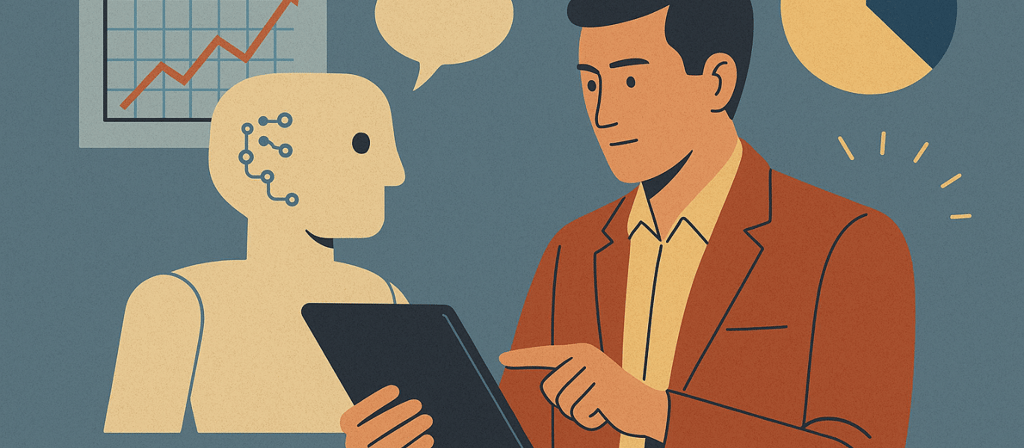AI Isn’t Replacing Your Job — It’s Rewriting the Job Description
AI isn’t taking your job — it’s transforming it. Learn how rural professionals can stay ahead by embracing curiosity, data literacy, and digital collaboration.
ARTIFICIAL INTELLIGENCE
Jacob Rose
10/15/20252 min read


The Fear Is Real — But Misplaced
Every industry is talking about artificial intelligence — what it means, who it helps, and who it might leave behind. And somewhere in that conversation, a familiar fear keeps surfacing: Will AI take my job?
It’s an understandable question. Change always stirs anxiety. But here’s the truth: AI isn’t replacing your job. It’s changing what your job means.
Just like tractors didn’t replace farmers — they changed farming.
Just like spreadsheets didn’t replace accountants — they made them more valuable.
AI is simply the next evolution of how we work.
From Doing Tasks to Driving Outcomes
The biggest shift we’re seeing is from “task-doing” to “value-creating.”
AI is taking over the routine — scheduling, sorting, summarizing — and leaving humans to do what we’ve always done best: connect, decide, and create.
That means your role isn’t going away.
It’s being rewritten to focus on higher-value skills like:
Understanding data instead of just entering it
Making decisions instead of just reporting on them
Leading people through change instead of avoiding it
For rural professionals, this isn’t a threat — it’s an opportunity to leap ahead of those still waiting for someone else to show them how.
The New Job Description: AI-Ready Professional
If you want to stay ahead of the curve, focus on these three capabilities:
Curiosity over Comfort
Don’t fear the new tool — ask how it can make your day easier. Curiosity is the modern skill that separates learners from laggers.Data Literacy
You don’t need to be a data scientist. But you do need to understand what your data is telling you. AI runs on data — the more you understand it, the more control you have.Digital Collaboration
Tools like Microsoft 365, Teams, and Power BI aren’t just software. They’re platforms for people who want to lead smarter, communicate better, and make faster decisions.
A Rural Advantage You Might Not Expect
In rural communities, we’ve always been good at resourcefulness. We’ve learned to fix what we have, to share tools, to innovate with less. That same mindset is exactly what makes us ready for the AI era.
Because AI isn’t about having the fanciest tech — it’s about learning to make the most of what’s already available.
And no one does that better than small-town professionals
The Takeaway
AI isn’t your replacement. It’s your assistant.
It’s not taking your purpose — it’s giving you new ways to live it out.
So the next time you hear that AI is changing the world of work, remember: The question isn’t whether your job will disappear.It’s whether you’ll take the chance to rewrite what it means to do it.
Getting Started: Your First Step Toward AI Confidence
You don’t need to overhaul your business or learn to code. You just need to take the first small step toward understanding how AI and modern tools can help you work smarter.
Here’s where to begin:
Pick one repetitive task — something that eats up your time each week.
Ask: “Could AI or automation do this for me?”
(Hint: Tools like Microsoft Power Automate or Copilot in Word/Excel are great places to start.)
Schedule 15 minutes a week to explore.
Watch a short tutorial, try a new M365 feature, or attend a local workshop. Small, consistent learning beats big, infrequent leaps.
Join the movement.
Subscribe to Bluegrass Business Insights for practical, Kentucky-grown tips on digital tools, data, and leadership in the modern workplace.

Empowering small businesses with automation and AI.
Contact
Subscribe
info@bluegrassbusinessinsights.com
804-536-8511
© 2025. All rights reserved.


